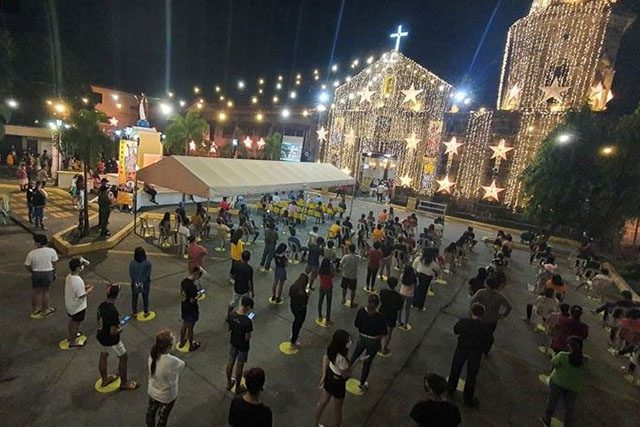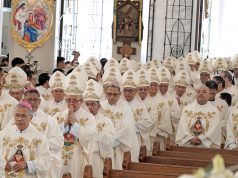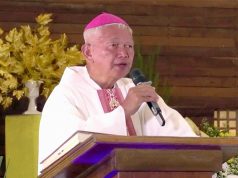
Filipino Catholic faithfuls who completed the nine-day “Simbang Gabi” or the devotional masses in anticipation of Christmas for the first time celebrated their achievement on social media
The masses are observed from December 15 to 23 in the evening and December 16 to 24 at dawn. The last mass to be observed is called the “Misa de Gallo.”
Due to the prevailing coronavirus pandemic, some masses were celebrated virtually or through live streams on social media and video sharing platforms.
Others were traditionally held in churches with health and safety protocols in place such as physical distancing and the wearing of face masks and face shields.
Churches only allowed up to 30% seating capacity under the general community quarantine (GCQ). Those under the less strict modified GCQ allowed 50% seating capacity.
READ: Keep safe: Filipino Catholic faithfuls reminded in attending Simbang Gabi
Those who have successfully completed the devotional masses for the first time shared their feat on Twitter, where the keyword “Misa de Gallo” landed on the local trending list Thursday morning.

“Thank you, Lord. I really thought I couldn’t complete the Misa de Gallo since I rarely wake up early pero I actually did it,” a Twitter user wrote with variety of emojis expressing her gratitude.
“First time in history na nakumpleto nako ang 9/9 Misa de Gallo. Thank you, Lord. Have a Blessed Day!” another online user shared with a folding hands symbol.
“Finally, I completed the Misa de Gallo. First time,” a different Twitter user shared with a rock-on symbol.
“For the first time ever, I’ve completed the 9 days of Misa de Gallo,” another online user likewise tweeted.
Wish granted?
Those who completed the nine-day masses are believed to have a wish granted.
Historian Xiao Chua said that despite the belief, it is not the official stand of the Catholic Church.
“Although hindi ‘yan official stand ng Simbahang Katolika, very Filipino ‘yan eh, may ginagawa kang panata, sakripisyo, kukumpletuhin mo,” he said to ABS-CBN’s DZMM Teleradyo.
“Yung nominal Catholics, mga ‘di nagsisimba ‘pag regular Sundays, ‘yan ay nagsisimba ‘pag Simbang Gabi, ganun ka-espesyal ang Simbang Gabi,” Chua added.
He said that the culture was adopted from the Spaniards when Roman Catholicism was introduced in the country.
“Ito ay in-adapt natin kasi ‘yung mga magsasaka sa umaga bago pumunta sa work, 9 days before Christmas, eh ‘yun ‘yung panahon nila para sumamba,” Chua said, referring to the farmers that time, who are mostly composed of Filipinos.
Manila Auxiliary Bishop Broderick Pabillo, meanwhile, reminded Filipinos that completing the nine-day masses is not like a genie in a bottle that will immediately grant wishes.
“Completing the nine days of Simbang Gabi is not for their wishes to be granted. That is a wrong belief. That is not what going to the Simbang Gabi is for,” he said in an interview.
“The nine days of praying is part of the preparation for the big feast of Christmas. For the formation of the faith and thanking God for His generosity,” Pabillo added.
“The nine days is a manifestation of the people’s persistence. Imagine you will wake up early for nine straight mornings… It is a sign of your love of God,” the prelate further said.









